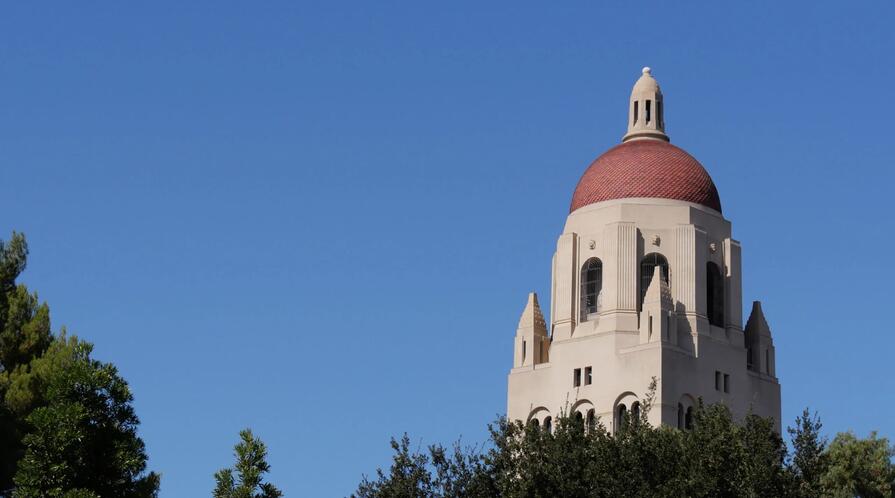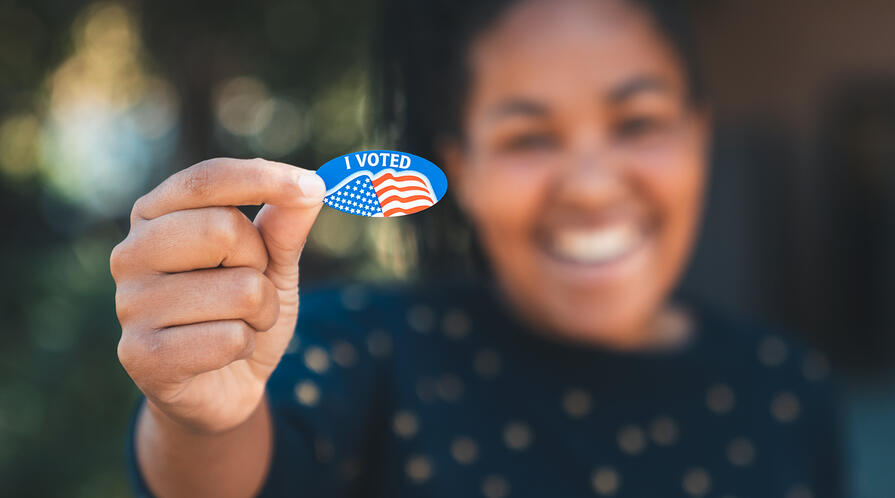“America Votes” in An Age of Polarization and Democratic Backsliding
The first of four panels of the “America Votes 2024: Stanford Scholars on the Election’s Most Critical Questions” series examined the changing political and global landscape shaping the upcoming U.S. presidential and congressional elections. The panelists shed light on the challenges of election administration, shifts in campaign strategies due to polarization, and the global context animating the election. Moderated by Kathryn Stoner, Mosbacher Director of the Center on Democracy, Development and the Rule of Law (CDDRL) and Senior Fellow at the Freeman Spogli Institute for International Studies (FSI), the panel featured Stanford scholars Shanto Iyengar, Beatriz Magaloni, and Nathaniel Persily. The “America Votes 2024” series is co-organized by CDDRL, the Hoover Institution’s Center for Revitalizing American Institutions, and the Institute for Research in the Social Sciences.
Evolving Election Administration and Oversight
The 2024 election will differ significantly from previous cycles, said Nathaniel Persily, the James B. McClatchy Professor of Law at Stanford Law School and a Senior Fellow at FSI. That is due to changes in the legal landscape, a shift in the social media environment, and ongoing threats to election officials.
Persily noted that many election officials have resigned due to rising threats. Changes like the Electoral Count Reform Act have impacted the certification process, and the decline of the Electronic Registration Information Center (ERIC) has affected voter registration accuracy. Persily raised concerns about how social media platforms have restricted access to election monitoring tools, like CrowdTangle, further complicating election oversight.
While new Artificial Intelligence tools are playing a growing role in content moderation on social media, they have limited reach, especially on popular platforms like TikTok. Persily pointed out that misinformation is a continuing concern, with conspiracy theories around mail-in ballots, poll watcher interference, and vote-counting delays potentially undermining public trust. However, he expressed some optimism, indicating that early voting could help election officials proactively address issues before Election Day and that the use of paper ballots in most states will add a layer of security.

Campaign Strategies in a Polarized America
William Robertson Coe Professor of Political Science and Communication Shanto Iyengar highlighted the impact of increasing polarization on campaign strategies. The deep-rooted partisan divide, he explained, has made persuading voters across the partisan line nearly impossible, pushing campaigns to focus instead on mobilizing their own base and targeting independent voters. Iyengar illustrated the impact of this polarization on everyday life, noting that political affiliation is now a significant factor in personal relationships and even in matters like dating and marriage.
Campaigns have responded to this changing environment by relying heavily on negative advertising, which tends to resonate with partisan voters. Negative ads, Iyengar explained, are effective in cementing party loyalty. Additionally, campaigns have focused on get-out-the-vote (GOTV) efforts, identifying likely supporters and encouraging them to vote. For independents, campaigns use positive messaging, as these voters are generally more receptive to constructive content about candidates rather than attacks. Despite the challenges, Iyengar suggested that well-timed, targeted outreach can still influence persuadable voters who may have limited media exposure.

The U.S. in a World of Democratic Backsliding
FSI Senior Fellow Beatriz Magaloni situated the U.S. election vis-à-vis a global trend of democratic backsliding. Magaloni, who is the Graham H. Stuart Professor of International Relations at Stanford’s Department of Political Science, explained that the election is occurring against the backdrop of democratic regressions worldwide. Many democracies, she indicated, are experiencing the weakening of political institutions, increasing centralization power, and erosion of civil liberties.
Although the U.S. remains a robust democracy, Magaloni explained, it is not immune to elements of backsliding. Instances of political violence, such as the January 6th Capitol attack and rising polarization, pose challenges to democratic norms. She also highlighted troubling signs, such as threats to civil liberties and political violence. At the same time, Magaloni stressed that the U.S. has institutional safeguards that protect against democratic backsliding. Among them is a system of checks and balances across federal and state levels.

The panelists emphasized the challenges posed by political polarization and declining trust in the integrity of democratic processes. They suggest that ensuring a smooth and trustworthy election will require continued vigilance from election officials, proactive problem-solving, and public reassurance. Campaigns, meanwhile, will likely double down on mobilization and targeted messaging as they navigate the complexities of an increasingly divided electorate. Finally, the broader global trend of democratic backsliding serves as a reminder that safeguarding democracy is just as relevant in the United States as it is in other parts of the world.
You can view a full recording of the event below and register for our upcoming events here:
Read More

The first of four panels of the “America Votes 2024: Stanford Scholars on the Election’s Most Critical Questions” series examined the changing political and global landscape shaping the upcoming U.S. presidential and congressional elections.



















